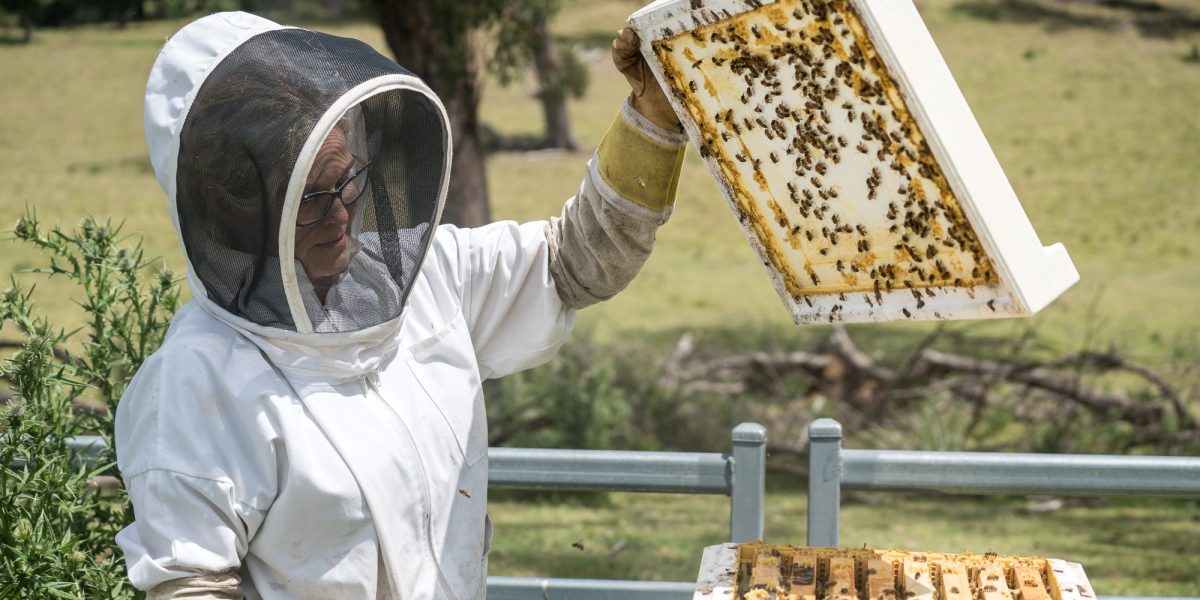University of New England (UNE) researcher Carolyn Sonter is urging the government to implement truth in labelling legislation for agricultural crop protection products, citing concerns about undisclosed ingredients that may harm honey bee populations.
Research has revealed that many pesticides and fungicides contain unlisted inert and adjuvant
ingredients, potentially including PFAS chemicals used to improve application and residue
durability
PFAS (per- and polyfluoroalkyl substances) are a group of synthetic chemicals known for their
persistence in the environment and potential health impacts on wildlife and humans.
“Honey bees are essential to Australian agriculture through their pollination services, but they’re
being exposed to chemicals that aren’t declared on product labels,” Carolyn Sonter, UNE
researcher, apiarist and bee advocate said.
Recent studies show that bees don’t avoid PFAS-contaminated nectar and pollen except at
extremely high concentrations, meaning they readily collect and consume these substances while
foraging.
“Our research demonstrates that PFAS exposure, even at low concentrations, is harmful to bees at
all life stages. This chronic exposure threatens not just commercial honey bee hives but potentially
all pollinators,” Sonter explained.
The current labelling requirements in Australia don’t mandate disclosure of all ingredients in
pesticides, leaving growers and beekeepers without crucial information for hive management.
“We’re seeing devastating hive deaths following spray events, even when products are labelled as
‘pollinator friendly’ or when beekeepers follow the recommended hive removal periods,” Carolyn
said.
“Without knowing what’s actually in these products, beekeepers can’t properly protect their
livestock.”
She is now calling for legislative change to require manufacturers to declare all pesticide
ingredients and their concentrations on product labels.
Concerned citizens and industry stakeholders can support this initiative by signing the petition for
truth in labelling of agricultural crop protection products: https://www.change.org/p/truth-in-
labelling-of-agricultural-crop-protection-products.
Carolyn will talk about the ecosystem services provided by bees, vital conservation initiatives and
industry approaches to managing the ongoing varroamite challenge at the next UNE TamTalks on Tuesday, 20 May from 5-6pm at the UNE Tamworth Centre, located 24 Fitzroy St, Tamworth.
Register at Eventbrite: https://www.eventbrite.com.au/e/une-tamtalks-world-bee-day-tickets-
1341487578459?aff=oddtdtcreator.
Advertising with New England Times is a cost effective and reliable way to reach New England locals who are interested and engaged. Find out more here.
Proudly powered by WordPress

